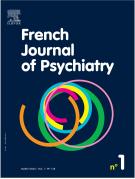Craving is everything: An eye-tracking exploration of attentional bias in binge drinking - 29/05/20

Résumé |
Attentional bias towards alcohol-related stimuli is a core characteristic of alcohol use disorders (AUD), playing a crucial role in their development and persistence. Many behavioral studies have shown an increased allocation of attentional resources towards alcohol-related stimuli in patients with AUD, but have also revealed a direct link between the bias and key alcohol-related variables like craving, alcohol consumption and relapse. Nevertheless, the extent of the bias in subclinical populations is still poorly documented. The present study used eye-tracking measures to:
– investigate the presence of attentional bias in a specific population presenting subclinical excessive alcohol consumption (i.e. binge drinking);
– determine the time course of the bias, by disentangling the role played by early and late processing stages;
– clarify whether the bias is specifically associated with alcohol-related stimuli or can be generalized towards other appetitive stimulations (i.e. high-caloric food stimuli);
– explore the role played by craving in the intensity of the bias.
Forty-two binge drinkers and 43 matched controls performed a visual probe task, which required the processing of visual targets preceded by pairs of pictures related to three comparisons (alcohol vs. soft, alcohol vs. high-calories food, salty or sugary food vs. low-calories food). While no difference was observed across conditions for early processing (i.e. first area of interest visited), a group difference for dwell time highlighted the presence of a bias towards soft drinks and healthy food among control participants, without any bias towards alcohol and high-caloric food in binge drinkers. Centrally, complementary analyses indicated that a bias towards alcohol and high-calories food was observed among binge drinkers only in the presence of high craving levels. It thus appears that the attentional bias towards alcohol repeatedly reported in severe AUD is only found in binge drinkers in the presence of elevated craving, and is generalized towards other appetitive cues.
Le texte complet de cet article est disponible en PDF.Keywords : Alcohol, Attentional bias, Eye-tracking, Alcohol use disorders, Binge drinking
Plan
Vol 1 - N° S2
P. S91 - décembre 2019 Retour au numéroBienvenue sur EM-consulte, la référence des professionnels de santé.
L’accès au texte intégral de cet article nécessite un abonnement.
Déjà abonné à cette revue ?

